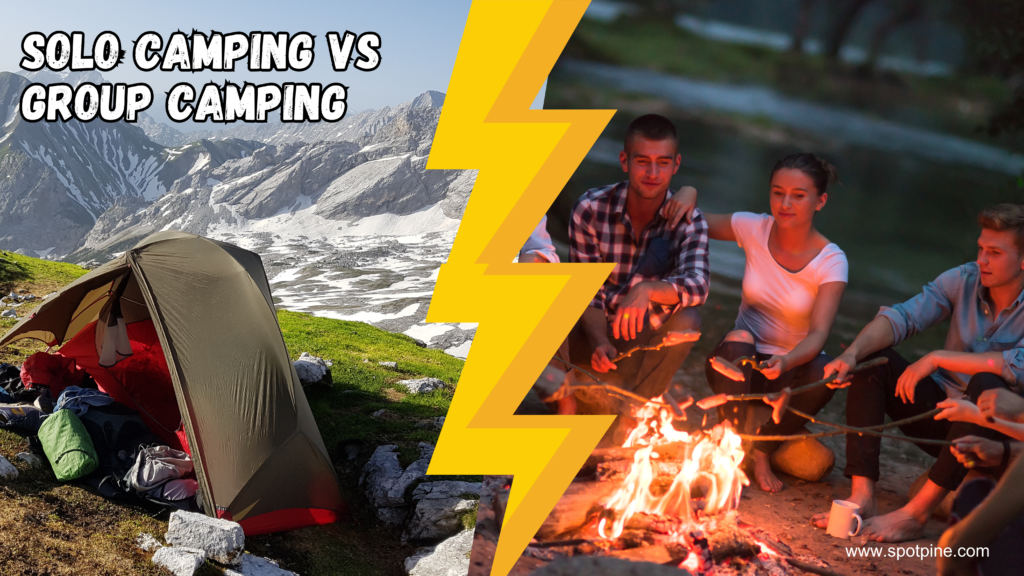Traveling alone teaches us self-reliance and self-discovery. It fosters independence and resilience, revealing our true strengths and capabilities.
When venturing solo, we confront new challenges, nurturing a profound understanding of our abilities and limits, ultimately leading to personal growth and empowerment. The journey allows for introspection, shaping our perspectives and instilling a sense of self-assurance. Whether it’s navigating unfamiliar territories or immersing in unique cultural experiences, traveling alone paves the way for gaining confidence and self-awareness.
The solitude provides a conducive environment to connect with our inner selves and build a solid foundation for self-trust and self-reliance. These experiences engrain invaluable life skills, shaping us into more confident and resilient individuals as we navigate the world solo.

Credit: gracefkim.com
The Power Of Solo Travel
Solo travel is a transformative experience that has the power to unravel hidden facets of our personalities and lead to profound self-discovery. When we venture into the unknown on our own, we open ourselves up to a world of introspection and growth. Among the many lessons solo travel imparts, the most impactful is the revelation of our inner strength and the cultivation of self-reliance.
Discovering Inner Strength
- Solo travel pushes us out of our comfort zones and forces us to confront challenges head-on.
- By navigating unfamiliar territories solo, we tap into reservoirs of courage and resourcefulness we never knew existed.
- Facing uncertainties independently enhances our resilience and fortitude, proving that we are capable of overcoming any obstacle.
Building Self-reliance
- Planning and executing a solo trip fosters a sense of self-reliance and independence.
- Solely responsible for our decisions and well-being, we learn to trust our instincts and judgement.
- Embracing solitude during solo travel empowers us to become self-sufficient problem-solvers, honing our decision-making skills.
Responsibility And Decision Making
Traveling alone empowers us to take full responsibility for our decisions and well-being, fostering independence and self-reliance. It teaches us to navigate new challenges, make informed choices, and trust in our capabilities to overcome obstacles, ultimately leading to personal growth and self-discovery.
Planning Your Trip Alone
Solo traveling teaches us the essence of responsibility and decision making. It starts with meticulously planning your trip alone, from choosing destinations to mapping out itineraries. The process entails research and making informed decisions to ensure a safe and fulfilling journey.
Financial Accountability
Another vital aspect is financial accountability. It involves budgeting for the trip, handling expenses, and ensuring financial security while traveling alone. Being financially responsible fosters independence and sharpens decision-making skills, as every financial choice directly impacts your solo travel experience.
Self-confidence And Independence
Embarking on solo travel cultivates self-confidence through tackling new challenges independently, fostering personal growth and resilience. This journey teaches us about our inner strengths, capabilities, and the importance of self-reliance in navigating the world with a newfound sense of independence.
Embracing Solitude
When we travel alone, we are confronted with ourselves in the purest form. The absence of familiar faces and the comfort of companionship forces us to embrace solitude, allowing us to truly get to know ourselves. It is in these moments of solitude that we discover our inner strengths, desires, and passions.
Embracing solitude can be a transformative experience, as it forces us to confront any insecurities or doubts that we may have about ourselves. Without the distractions and opinions of others, we learn to trust our own judgment, make decisions based on our own values, and navigate through unfamiliar territories with confidence.
Personal Growth
Traveling alone not only builds self-confidence but also fosters personal growth. It pushes us out of our comfort zones and presents us with new challenges that we must overcome independently. These experiences help us develop problem-solving skills, adaptability, and resilience. We become more self-reliant and comfortable in our own skin.
Moreover, solo travel exposes us to different cultures, customs, and ways of life. This exposure broadens our perspectives and enhances our understanding of the world. We learn to appreciate diversity and become more open-minded individuals.
Additionally, solo travel provides the opportunity to step away from our daily routines and reflect on our lives. This self-reflection allows us to evaluate our goals, values, and priorities, leading to personal growth and self-discovery.
Ultimately, traveling alone teaches us the importance of self-confidence and independence in navigating life’s challenges. It empowers us to trust ourselves, embrace solitude, and embark on new adventures without hesitation. So pack your bags, book that solo trip, and let the journey of self-discovery begin.
The Relationship Between Solitude And Loneliness
When it comes to traveling alone, one of the most significant aspects to explore is the relationship between solitude and loneliness. While the terms solitude and loneliness are often used interchangeably, there is a distinct difference between the two. Solitude is the state of being alone, where one can find peace, introspection, and personal growth. On the other hand, loneliness is the feeling of being alone and lacking connection or companionship.
Coping With Ups And Downs
Traveling alone allows us to experience both the ups and downs of life in a more profound way. We face challenges, unexpected situations, and moments of pure joy without anyone else to rely on. This teaches us resilience and adaptability, making us better equipped to cope with the inevitable ups and downs of life. We learn that even in the face of adversity, we can find strength within ourselves to overcome obstacles and rise above difficult situations.
Importance Of Personal Connections
While solitude can be empowering, it is essential to recognize the value of personal connections during solo travel. Interacting with locals and other travelers opens up new perspectives, broadens our horizons, and creates meaningful experiences. These connections remind us of the beauty of human interaction and the importance of fostering relationships, even when traveling alone. The memories and friendships formed during solo adventures can have a lasting impact on our lives, reminding us of the power of connection and the significance of shared moments.
Psychological Benefits Of Traveling Alone
Embarking on solo travel helps us delve into self-discovery, fostering independence and self-trust through navigating new challenges. It cultivates self-reliance and problem-solving skills, enhancing our ability to make informed decisions and strengthen our sense of accountability.
The psychological benefits of traveling alone are vast and can have a profound impact on our personal growth. One of the key advantages is the increased sociability that comes with solo travel. When we are on our own, we are more likely to reach out and connect with the people we encounter along the way. This is because we don’t have a companion to rely on, so we have to take the initiative to interact with others. Solo travelers often find themselves striking up conversations with locals, fellow travelers, and even strangers, which can lead to meaningful connections and memorable experiences. Moreover, traveling alone provides an opportunity to build stronger social networks. Without the familiarity of a travel partner, we are more inclined to seek companionship and expand our social circle. As we open ourselves up to new friendships, we create a network of like-minded individuals who share similar interests and passions. These connections can extend beyond the duration of our trip and become lifelong friendships. Solo travel teaches us the value of forging connections with others and the importance of social support in our lives.
When Camping Is The Goal Not Destination?
To summarize, the psychological benefits of travelling alone are significant. It not only encourages increased sociability but also leads to the establishment of stronger social networks. Through solo travel, we learn to step out of our comfort zones and reach out to others, creating meaningful connections and lasting friendships. So, if you’ve been hesitant about embarking on a solo adventure, remember that it can be a transformative experience that teaches us valuable lessons about ourselves and the world around us. Increased Sociability Solo travel enhances sociability through the absence of a travel companion. Without someone to lean on, we are more likely to reach out and connect with people we meet along the way. This leads to meaningful conversations, cultural exchanges, and the formation of new friendships. Being solo encourages us to break out of our shell and interact with others, creating memorable experiences and expanding our social skills. Stronger Social Networks Traveling alone allows us to build stronger social networks. Without the familiarity of a travel partner, we are motivated to seek companionship and expand our social circle. By engaging in conversations with locals, fellow travelers, and strangers, we form connections that can last a lifetime. These relationships provide us with a support system, as well as opportunities for future travel and shared experiences. In conclusion, solo travel provides numerous psychological benefits, including increased sociability and stronger social networks. It encourages us to step out of our comfort zones, interact with others, and forge meaningful connections. If you are considering solo travel, remember that it can be a transformative experience that teaches us valuable lessons about ourselves and the world around us. So, embrace the opportunity to discover new horizons and connect with people from different cultures and backgrounds.
Challenging Your Comfort Zone
Traveling alone pushes us outside of our comfort zone, teaching us to be self-reliant and adaptable. It challenges us to embrace new experiences, build confidence, and discover our true selves.
Facing Unfamiliarity
Embarking on solo travel ventures places us in unfamiliar territories, testing our ability to adapt and thrive in new environments.
Lessons Learned From Discomfort
Discomfort during solo travel serves as a valuable teacher, pushing us to develop resilience and problem-solving skills. As we step out of our comfort zones, we discover hidden strengths and capabilities, fostering personal growth and self-awareness. Solo travel illuminates our capacity to navigate challenges independently, instilling a sense of empowerment and confidence. Facing the unknown during solo adventures fosters a deep sense of self-reliance and adaptability, reshaping our perspectives on limitations. Navigating through discomfort while traveling alone enables us to embrace uncertainty and transform challenges into opportunities for growth.
Personal Transformation Through Solo Travel
Overcoming Fears
Solo travel allows us to face our fears head-on, such as fear of the unknown, fear of being alone, and fear of failure.
It pushes us out of our comfort zone and teaches us that we are capable of handling challenging situations independently.
Through overcoming these fears, we build resilience and confidence in our abilities.
Exploring New Perspectives
Traveling alone opens our minds to diverse cultures, traditions, and ways of living.
We learn to appreciate the beauty in differences and gain a deeper understanding of the world around us.
It broadens our perspectives and fosters personal growth through exposure to new experiences and ideas.

Credit: solotravelerworld.com
Embracing The Journey Within
Traveling alone provides an opportunity for profound self-reflection and personal growth. Throughout the journey, individuals are faced with challenges that unveil their inner resilience and encourage them to delve into the realms of self-exploration.
Realizing Inner Resilience
Solitary travel exposes individuals to situations that demand courage and adaptability. This fosters a realization of inner resilience, empowering individuals to navigate unforeseen circumstances and emerge with newfound strength.
Encouraging Self-exploration
By immersing oneself in unfamiliar environments and cultures, solo travelers are prompted to introspect and confront their deepest thoughts and emotions. This process encourages profound self-exploration, unveiling aspects of their identity that may have remained concealed in the routine of everyday life.
Traveling alone unlocks our inner strength and resilience, revealing our ability to navigate through challenges independently. It enhances self-confidence and fosters personal growth, as we learn to embrace solitude and trust our instincts. Embracing the enriching experiences of solo travel empowers us to build lifelong skills and deepen our relationship with ourselves.
What To Do When Camping Alone?
FAQs:
What Does Solo Travelling Teach You?
Solo traveling teaches responsibility, self-reliance, and decision-making. It enhances confidence and problem-solving skills. It fosters independence and self-discovery.
What Does Traveling Alone Say About A Person?
Traveling alone shows independence, self-reliance, and courage, enhancing personal growth. It doesn’t indicate loneliness or isolation but rather self-assuredness and adaptability.
What Is The Point Of Travelling Alone?
Traveling alone allows you to focus on yourself, strengthen self-trust, and develop lifelong skills like problem-solving.
What Is The Psychology Of Traveling Alone?
Traveling alone helps individuals understand and strengthen their self-confidence. It teaches accountability, decision-making, and the ability to rely on oneself, fostering personal growth and self-reliance. Additionally, it promotes heightened social interaction and a deepened understanding of one’s capabilities.



